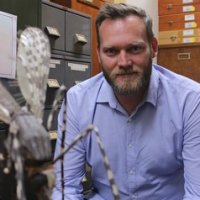Articles / Ross River Virus Spread and Suppression


writer
Principal Hospital Scientist, Department of Medical Entomology at NSW Health Pathology, Westmead Hospital; Clinical Lecturer, University of Sydney

writer
Postdoctoral Research Fellow (U.Tasmania), University of Tasmania
0 hours
These are activities that expand general practice knowledge, skills and attitudes, related to your scope of practice.
0 hours
These are activities that require reflection on feedback about your work.
0 hours
These are activities that use your work data to ensure quality results.
These are activities that expand general practice knowledge, skills and attitudes, related to your scope of practice.
These are activities that require reflection on feedback about your work.
These are activities that use your work data to ensure quality results.
Ross River virus is Australia’s most common mosquito-borne disease. It infects around 4,000 people a year and, despite being named after a river in North Queensland, is found in all states and territories, including Tasmania.
While the disease isn’t fatal, it can cause debilitating joint pain, swelling and fatigue lasting weeks or even months. It can leave sufferers unable to work or look after children, and is estimated to cost the economy A$2.7 to A$5.6 million each year.
There is no treatment or vaccine for Ross River virus; the only way to prevent is to avoid mosquito bites.
Mosquitoes pick up the disease-causing pathogen by feeding on an infected animal. The typical transmission cycle involves mosquitoes moving the virus between native animals but occasionally, an infected mosquito will bite a person. If this occurs, the mosquito can spread Ross River virus to the person.

Menopausal Hormone Therapy - What Dose of Estrogen is Best?

Cardiovascular Benefits of GLP1s – New Evidence

Oral Contraceptive Pill in Teens

RSV and the Heart

writer
Principal Hospital Scientist, Department of Medical Entomology at NSW Health Pathology, Westmead Hospital; Clinical Lecturer, University of Sydney

writer
Postdoctoral Research Fellow (U.Tasmania), University of Tasmania


Modified but kept in place
Eliminated entirely without replacement
Maintained as is
Completely replaced with an alternative system
Listen to expert interviews.
Click to open in a new tab
Browse the latest articles from Healthed.
Once you confirm you’ve read this article you can complete a Patient Case Review to earn 0.5 hours CPD in the Reviewing Performance (RP) category.
Select ‘Confirm & learn‘ when you have read this article in its entirety and you will be taken to begin your Patient Case Review.
Menopause and MHT
Multiple sclerosis vs antibody disease
Using SGLT2 to reduce cardiovascular death in T2D
Peripheral arterial disease
